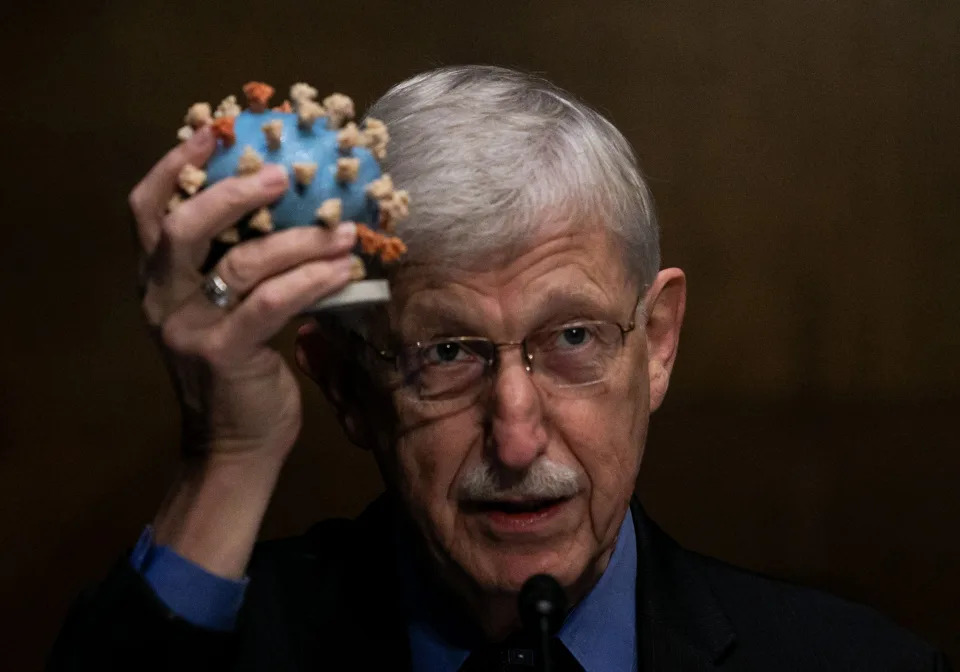Religious People Coped Better with the COVID-19 Pandemic, Research Suggests; This Doctor Admitted COVID Pandemic Mistakes. Then His Critics Attacked Him Again, and other C-Virus related stories
Religious people coped better with the COVID-19 pandemic, research suggests:
People of religious faith may have experienced lower levels of unhappiness and stress than secular people during the UK’s COVID-19 lockdowns in 2020 and 2021, according to new University of Cambridge research.
The findings follow a Cambridge-led study suggesting that worsening mental health after experiencing COVID infection—either personally or in those close to you—was also somewhat ameliorated by religious belief. This study, published in the journal European Economic Review looked at the US population during early 2021.
University of Cambridge economists argue that—taken together—these studies show that religion may act as a bulwark against increased distress and reduced well-being during times of crisis, such as a global public health emergency.
“Selection biases make the well-being effects of religion difficult to study,” said Prof Shaun Larcom from Cambridge’s Department of Land Economy, and co-author of the latest study. “People may become religious due to family backgrounds, innate traits, or to cope with new or existing struggles.”
“However, the COVID-19 pandemic was an extraordinary event affecting everyone at around the same time, so we could gauge the impact of a negative shock to well-being right across society. This provided a unique opportunity to measure whether religion was important for how some people deal with a crisis.”
Larcom and his Cambridge colleagues Prof Sriya Iyer and Dr. Po-Wen She analyzed survey data collected from 3,884 people in the UK during the first two national lockdowns, and compared it to three waves of data prior to the pandemic.
They found that while lockdowns were associated with a universal uptick in unhappiness, the average increase in feeling miserable was 29% lower for people who described themselves as belonging to a religion.*
The researchers also analyzed the data by “religiosity”: the extent of an individual’s commitment to religious beliefs, and how central it is to their life. Those for whom religion makes “some or a great difference” in their lives experienced around half the increase in unhappiness seen in those for whom religion makes little or no difference. —>READ MORE HERE
This doctor admitted COVID pandemic mistakes. Then his critics attacked him again:
For all of the rending of our social fabric over the past eight years in the United States, nothing has been more bitterly polarizing than our public health response to the COVID-19 pandemic.
Faced with a fast-spreading virus and the potential of millions of American deaths, public health officials and politicians accelerated the development of vaccines and implemented lockdowns on businesses, schools and communities in an attempt to slow the spread of the disease and to save lives.
Now, Dr. Francis Collins, former director of the National Institutes of Health, has been publicly reflecting on the mistakes made by the public health establishment during the pandemic. In doing so, he has unintentionally highlighted a challenge for those who seek to rebuild trust among the American people and between the American people and their leaders: the penalty we pay for humility.
I have a professional connection to this story as national ambassador for Braver Angels, America’s largest cross-partisan, grassroots organization dedicated to the work of bridging political depolarization. (That’s a fancy way of saying we are liberals, conservatives and others working toward rebuilding trust among the American people and the people and their institutions.)
In 2022, Braver Angels was put in touch with Collins because of his desire to engage constructively with critics of our public health response to the pandemic. Collins wanted to get to know ordinary Americans to better understand why so much of the public had lost faith in our public health institutions. —>READ MORE HERE
Follow links below to relevant/related stories and resources:
Workers face downside to remote jobs: Double taxation threat
Working From Home Could Up Your Risk of Being Laid Off
USA TODAY: Coronavirus Updates
YAHOO NEWS: Coronavirus Live Updates
NEW YORK POST: Coronavirus The Latest







Comments are closed.